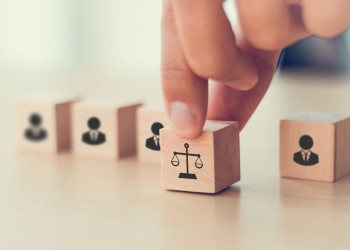Recent Developments in IP Case Law on Generative AI (2nd Update)
20 February 2024
This brief review covers the latest updates on intellectual property case-law related to generative AI and AI in general from various countries.
Patents
US
New (?) Guidelines for the examination of AI-assisted inventions
On February 12, 2024, the U.S. Patent and Trademark Office (the “USPTO”) published an inventorship guidance for AI-assisted inventions (the “Guidance”). The Guidance was issued pursuant to the Executive Order on Artificial Intelligence signed by U.S. President Joe Biden and the Federal Circuit’s August 5, 2022 ruling in Thaler v. Vidal, in which the court upheld the USPTO’s decision to deny Thaler’s patent applications on the basis that only a natural person can be an inventor¹.
The objective of the Guidance is to establish explicit rules regarding the manner in which the USPTO will evaluate inventorship pertaining to AI-assisted inventions (i.e., inventions created by natural persons with the aid of AI tools) in light of the increasing prominence of AI systems, particularly generative AI.
The upshot of the Guidance is that AI-assisted inventions are not inherently unpatentable, but a natural person must have made a “significant contribution” to the invention in order for it to be patentable.
But what is a “significant contribution”? the Guidance sets forth the following non-exhaustive list of principles:
- Use of an AI system does not in and of itself preclude patent protection to the invention.
- “Significant contribution could be shown by the way the person sets the prompt with a particular issue in mind in order to evoke a specific response from the AI system.”
- Significant contribution could also be demonstrated if a natural person significantly contributes to the output of the AI system or otherwise conducts an experiment using an output.
- If a natural person builds an AI system “in view of a specific problem to elicit a particular solution” and the invention is created with such AI system, it can amount to significant contribution.
- “A person simply owning or overseeing an AI system that is used in the creation of an invention, does not make that individual an inventor”.
The foregoing principles are based on a three-prong test established in the 1998 case of Pannu v. Iolab Corp. for the determination of joint inventorship. As the Guidance rightfully notes, they do not provide a “bright-line test” and will, in fact, still require a case-by-case, claim-by-claim analysis. Moreover, as these principles are based on a 1998 non-technological case, they lack the ability to properly address the complex intersection of patent law and recent advancements in AI technologies.
Thus, while the USPTO has already provided two examples illustrating how inventorship is determined for claims related to AI-assisted inventions based on these principles, many questions remain unaddressed, leaving AI-assisted inventors with a contribution test that is not yet ripe.
Copyrights
India
Moving to another country that considers its current intellectual property law regime to be “well-equipped” to deal with AI-generated works, India’s Ministry of Commerce and Industry has issued a statement (the “Statement”) declaring that AI-generated works are already protected under India’s current intellectual property regime and that there are no plans to establish a separate group of rights for AI-generated content.
The Statement specifically refers to India’s Copyright Act of 1957, which, on the one hand, grants generative AI users copyrights in their AI-generated work, and on the other hand requires AI developers to obtain permission to use copyrighted materials if the fair dealing exceptions of Section 52 of the Copyright Act do not apply. Such exceptions are narrower than the US or Israeli fair use exceptions and generally do not apply to commercial use.
Although the Statement presents India as a pioneer in recognizing the intellectual property rights of AI users in their works, which is contrary to the trends observed in the European Union and the United States, it fails to provide guidance on the application of the legal criteria that determine whether an AI-generated work is copyrightable. Many questions pertaining to the ownership of AI-generated works thus remain to be resolved by the courts of India.
US
Turning back to the US, the U.S. District Court for the Northern District of California has partially dismissed one of the most renowned copyright class actions against OpenAI, brought by several authors (including comedian Sarah Silverman), who claimed that OpenAI’s ChatGPT copied their copyrighted books and used them in its training dataset.
In the February 12, 2024 ruling the court ordered the dismissal of all claims related to vicarious copyright infringement, DMCA violations, negligence, and unjust enrichment. With that said, the court upheld the part of the claim related to unfair competition; most importantly, OpenAI did not seek the dismissal of the primary complaint, which asserted that ChatGPT directly infringed the copyrights of the authors, and this remains to be examined.
Certain statements made by Judge Martínez-Olguín in the ruling could be predictive of the final result, including that “nowhere in plaintiffs’ complaint do they allege that defendants reproduced and distributed copies of their books”, and that they “must show a substantial similarity between the outputs and the copyrighted materials”.
The plaintiffs have until March 15th, 2024 to submit amendments to their complaint in keeping with this ruling. Either way, the court has yet to decide on the pivotal issue of direct copyright infringement, which could have significant implications for the future of generative AI.
If you would like to read our previous update >> click here
¹As previously noted in our first client update on this matter, Dr. Thaler attempted to challenge intellectual property laws around the world by filing international and national patent applications that listed his AI machine, DABUS, as an inventor.
We are happy to respond to any questions on this matter
Intellectual Property Department
Herzog Fox & Neeman





